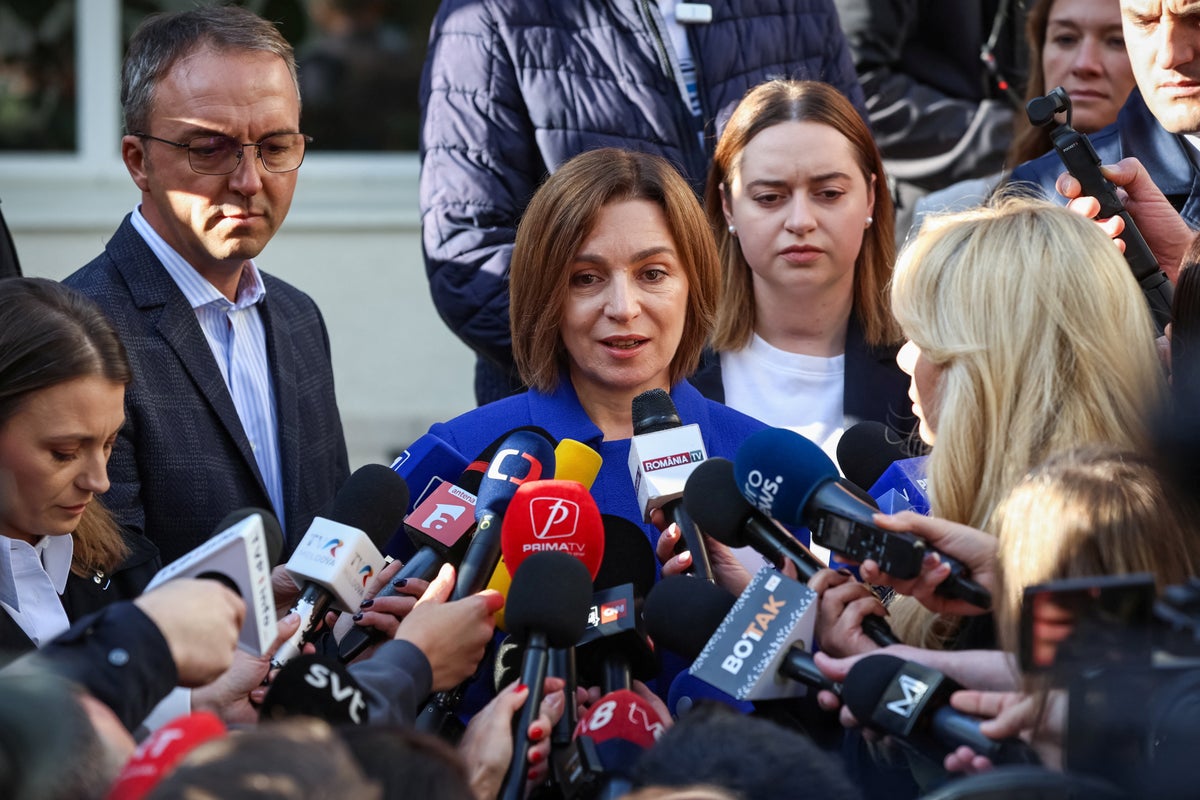
Moldova’s ruling pro-Western party won a resounding victory in parliamentary elections on Monday, overcoming several pro-Kremlin opponents in a vote overshadowed by accusations of Russian interference.
President Maia Sandu’s Party of Action and Solidarity (PAS) had secured 50.2 per cent of the vote with all ballots counted by Monday. The pro-Russian Patriotic Electoral Bloc coalition sat at less than 25 per cent.
Electoral data indicate the PAS will hold a clear majority of about 55 of the 101 seats in the legislature.
PAS’s surprise majority comes as a major boost for the country’s bid to join the European Union by 2030 and break away from Moscow’s orbit amid rising tensions on Europe’s eastern frontier. The vote was widely seen as a choice for the electorate between aligning more closely with the West or folding back into Russia’s sphere of influence.
Ahead of the election, the government in Chisinau had accused Moscow of deliberately attempting to sway the vote through widespread disinformation and vote-buying. Russia denied the accusations.
National Security Adviser Stanislav Secrieru claimed election infrastructure and government websites had come under cyber attack, and that fake bomb threats had been called in to polling stations in Moldova and abroad. Three people were also arrested in Moldova on suspicion of plotting unrest.
Ukraine’s President Volodymyr Zelensky hailed Moldova’s election result, saying Moscow had failed to “destabilise” the country.
“These elections showed that Russia’s destabilising activity loses, while Moldova in Europe wins,” he wrote on X. “Russian subversion, constant disinformation – none of this worked. It is important that Moldova was effective in defending itself against threats together with all who helped.”
Russian officials denied interference through the election and in turn accused the government of meddling.
Igor Dodon, leading the pro-Russian bloc, claimed victory before results were announced and rejected the outcome, claiming allies were compiling evidence of electorial violations.
He called for a peaceful protest outside parliament today.
Leonid Slutsky, head of the Committee on International Affairs in Russia’s parliament, said on Telegram there had been “violations of electoral rights and freedoms, large-scale purges of the political space, and blatant falsifications”.
“The Sandu regime is leading Moldova down the path of Ukraine”, he said.
Ursula von der Leyen, the European Commission presdident, hailed the outcome in a post on X: “Moldova, you’ve done it again. No attempt to sow fear or division could break your resolve.”
Some polls leading up to the election had put PAS and the Patriotic bloc neck-and-neck with neither likely to get a majority. Turnout was at 52 per cent – a rise from recent elections.
Natia Seskuria, Associate Fellow at the Royal United Services Institute (RUSI), told The Independent the result “marks a decisive setback for Moscow” which she said “has invested considerable resources in undermining the country’s pro-Western foreign policy aspirations”.
“Crucially, this outcome also illustrated that, despite pervasive Russian interference, the Moldovan government has successfully strengthened societal resilience, prepared its citizens for potential disruptions, and dismantled Moscow’s disinformation campaigns.”
She said that concerns around electoral interference show the Kremlin’s “growing sense of desperation to preserve influence over countries it continues to regard as falling within its sphere of influence”, and warned that Moldova “will remain at the forefront of Russian pressure, serving as a testing ground for the Kremlin’s hybrid tactics”.
